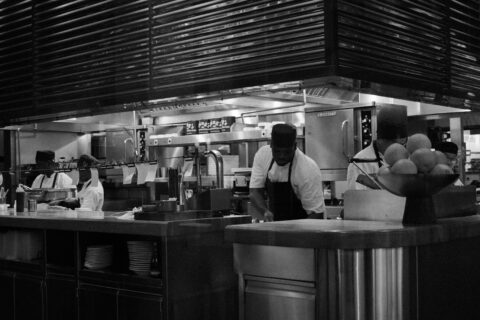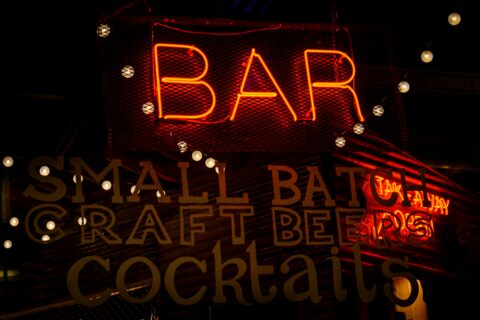Alcohol intoxication is an issue to be taken seriously.
Part of your responsibilities as a worker in the hospitality industry is recognising when patrons have had one too many drinks. This is a key skill you will learn in any good RSA course.
Sometimes it can be easy. If they are singing karaoke along to the subtitles on the late-night news, they’re probably well on their way to being intoxicated. Other times, it might not be so obvious.
This is a guide on the signs that someone may be intoxicated.
What is Intoxication?
Intoxication is a condition of having diminished physical or mental control by the effects of drugs or alcohol.
Why should you care?
As part of responsible service of alcohol, it is prohibited to sell or supply alcohol to intoxicated people. This is part of Licensee’s obligations to serve alcohol responsibly, along with preventing intoxication from occurring on their premises.
There are severe penalties if a venue or a licensee are discovered to have been ignoring this rule.
On a more positive note, there are also a heap of benefits for a business and it's local area when responsible service of alcohol guidelines are followed. These include: protecting the business, increased customer safety and customer experience, and increased staff confidence
Liquor & Gaming NSW have created Intoxication Guidelines to help licensees identify whether or not a person is intoxicated. Licensees are obligated to follow the guidelines primarily for these three reasons:
-
to minimise the harm that is associated with the misuse and abuse of liquor;
-
to encourage responsible attributes and practices towards the promotion, sale, supply, service, and consumption of alcohol;
-
and to ensure that the sale, supply, and consumption of liquor contributes to, and does not detract from, the amenity of community life.
Business Queensland also have a section on their website about unduly intoxicated patrons.
Signs of Intoxication
There are four main signs that indicate intoxication:
Speech
Intoxication often leads to markedly diminished physical control over speech such as slurred speech which is a common symptom of inebriation. When suspecting a patron to be intoxicated, listen to how they speak. Are they talking in a slurred manner? Is the train of thought in their speech often derailed or incoherent? How many drinks have they had before their speech became difficult to understand?
If their incoherent speech has worsened with every drink, then they may already be intoxicated and should be cut off from alcohol. If the drunk person is your companion, gently urge them to either stop drinking, or at the very least, to drink more slowly and offer them water as well.
Here are some signs to keep an eye out for:
Balance
Intoxication may make people feel drowsy or loose-limbed, and they may have difficulty staying upright. Stumbling or bumping into furniture can be signs of intoxication; loss of balance is one of the more common effects of excessive drinking.
A few signs that may indicate someone is intoxicated are:
-
unsteady on feet
-
swaying uncontrollably
-
staggering
-
difficulty walking straight
-
cannot stand, or falling down
-
stumbling
-
bumping into or knocking over furniture or people.
Coordination
Intoxication doesn’t always manifest as slurred speech or falling over one’s own feet. In some cases, intoxication creeps along quietly, displaying itself through a lack of coordination.
Instances such as failing to find their mouths with their glass or misjudging the distance between one object and another then they may be intoxicated.
Other signs of someone struggling with their coordination are:
-
spilling drinks
-
dropping drinks
-
fumbling change
-
difficulty counting money or paying
-
difficulty opening or closing doors
-
inability to find their mouth with a glass
Behaviour
Drinking doesn’t automatically make people rowdy or aggressive. However, alcohol does lower inhibitions and leaves people prone to engaging in reckless behaviours. This includes becoming aggressive, argumentative or acting in an offensive or inappropriate manner. Intoxication can lead to making impaired decisions as well, such as choosing to drive while inebriated.
Some of the behavioural signs to look out for are:
-
Aggressive
-
Annoying/pestering others
-
Argumentative
-
Bad tempered
-
Belligerent
-
Confused
-
Difficulty paying attention
-
Disorderly
-
Drowsiness or sleeping at a bar/table
-
Exuberant
-
Inappropriate sexual advances
-
Loss of inhibition
-
Loud/boisterous
-
Not understanding normal conversation
-
Offensive, including the use of offensive language
-
Overly friendly
-
Physically violent
-
Rude
-
Vomiting
Could there be other reasons for these signs?
Absolutely, there are heaps of other reasons someone could be displaying these symptoms and we recommend talking to the patron about possible causes for their intoxication.
Before and during a conversation with a potentially intoxicated patron try to make observations to help draw your conclusions. Potential things you could observe are:
-
Does the person smell of alcohol?
-
How long has the person been drinking?
-
When did the person enter the premises?
-
Was the person affected by alcohol when they arrived?
-
What type of alcohol has been consumed?
-
How much alcohol have you seen the person drink?
There may be conditions that result in a person displaying signs of intoxication without having consumed any alcohol. This is why talking to the patron or their friends is so important before drawing a conclusion.
Things To Keep In Mind Before Talking To An Intoxicated Patron
We all know from personal experience that it can be difficult to communicate with intoxicated patron. Before dealing with, and communicating with an intoxicated patron, there are some key steps to keep in mind which include:
-
Always show patience and respect to the person you are dealing with, no matter their level of intoxication
-
Think about what you are going to say before you speak
-
Speak loudly so that they are able to hear you clearly
-
Speak slowly. You may have to repeat yourself to ensure that the message has been received and understood
-
Use short uncomplicated sentences and language
-
Ask the patron only one question at a time, as too many questions can be confusing
-
Remember their personal space and be respectful of that
-
Ask questions if only necessary
-
Smile and keep a positive manner
-
Use friendly body language
-
Check that they understand what you are saying
Intoxicated patrons can be difficult to communicate with, but using and implementing the above methods can make this easier. Always keep in mind that the person you are dealing with is a customer and deserves respect; no matter the circumstances.
Also, bear in mind that intoxicated persons can become aggravated quickly, so maintain a calm and positive attitude to ensure that the patron feels comfortable.
If you'd like to learn more, our RSA courses will cover this in detail.




